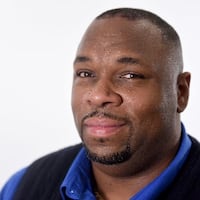Clark Atlanta University’s enrollment is up for the fourth consecutive semester. Spelman College got a record number of applicants this year. Across the country, historically black colleges and universities are seeing large enrollment increases.
Reasons, say observers, include effects from police shootings involving white police officers and black victims, as well as minority students' feelings of oppression at predominantly white institutions. Changes in recruitment also have helped, school officials say.
Ingrid Hayes, vice president for enrollment management at Spelman, said officials are establishing relationships with high school sophomores who’ve shown an interest in the school. She said the school received more than 7,800 applications for the current school year.
She agreed, however, that the current racial and political climate may have impacts on enrollment that they can’t quantify.
"Students of color have a heightened sense of awareness regarding the various social and political conversations that are going on around the country and they are seeking places where they feel they have an opportunity to make an impact and also where they simply can be a college student without feeling they're on the margins of that conversation," she said.
Clark Atlanta officials said exact enrollment figures won’t be available until next week, but mentioned recruitment strategy changes as a reason for the increases.
“While we have developed a more robust recruitment and admission strategy in recent years, we continue to identify ways to enhance our outreach efforts,” said Michael J. Marshall, vice president for enrollment services.
According to the National Center for Educational Statistics, 38 percent of HBCUs reported at least a 10 percent increase in enrollment between 2013 and 2014. Marybeth Gasman, a University of Pennsylvania professor and director of the Penn Center for Minority Serving Institutions, said she's heard from people who have changed their mind about HBCUs and emphasize key reasons such as the intimate atmosphere and welcoming culture.
According to data collected at the Penn Center for Minority Serving Institutions, Harris Stowe University in St. Louis saw a 50 percent increase in the size of its incoming freshman class this year. South Carolina State saw a 40 percent increase. Virginia State saw a 30 percent increase.
Donald Trump could be helping boost enrollment at HBCUs as well, Gasman said.
“Part of it is a visceral reaction to Trump’s rhetoric,” she said. “Combined with what had been going on all last year on majority campuses where black and other students of color felt like … the lip service to diversity wasn’t really truthful.”
Minority enrollment has generally been rising at all colleges. At Atlanta's Emory University, for example, a quarter of incoming students from the United States last year were minorities, Emory said. Between 2003 and 2013,the percentage of black students rose from 10 percent to 15 percent in all degree-granting institutions, as total enrollment increased 20 percent, from 16.9 million to 20.4 million.
About the Author
Keep Reading
The Latest
Featured


